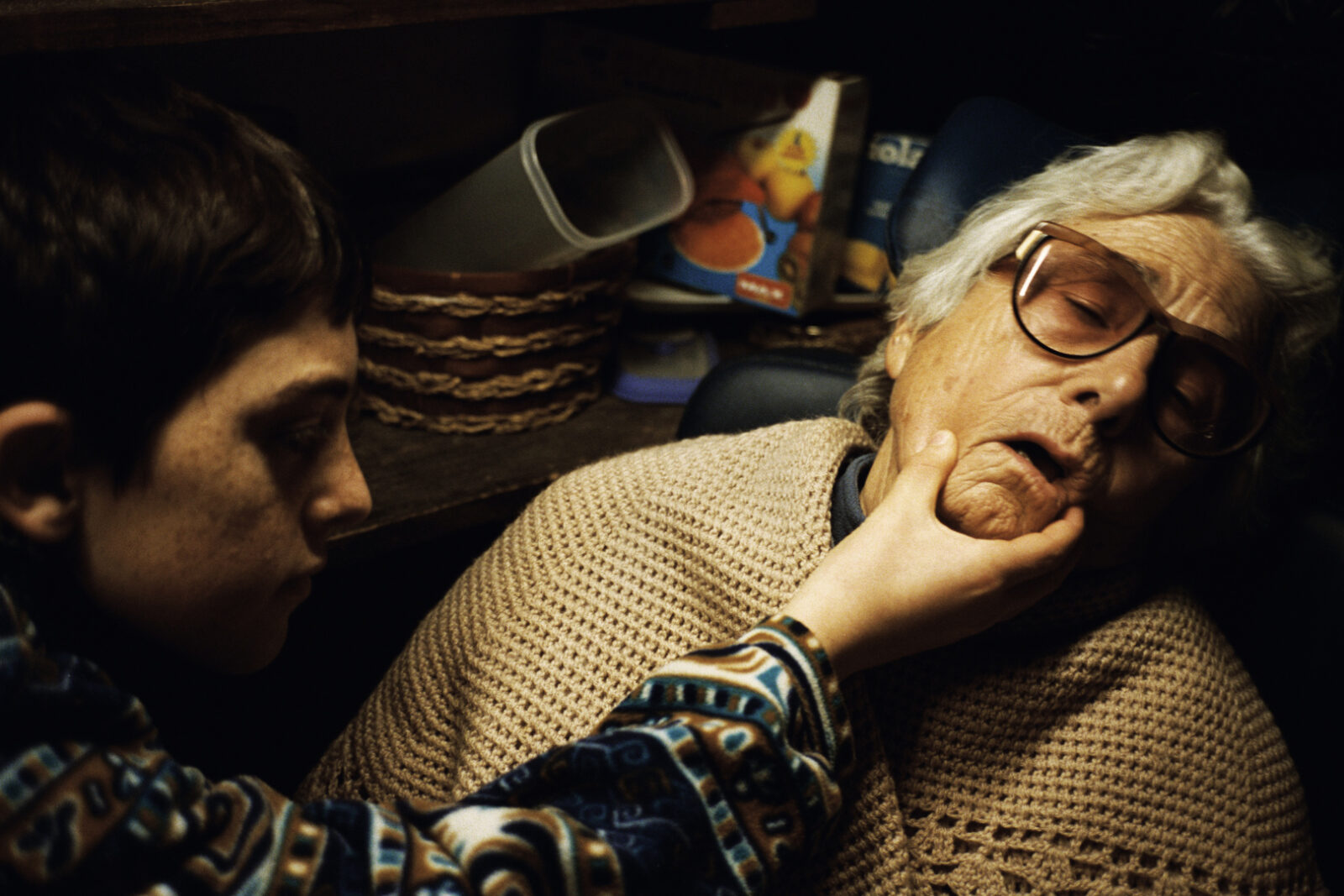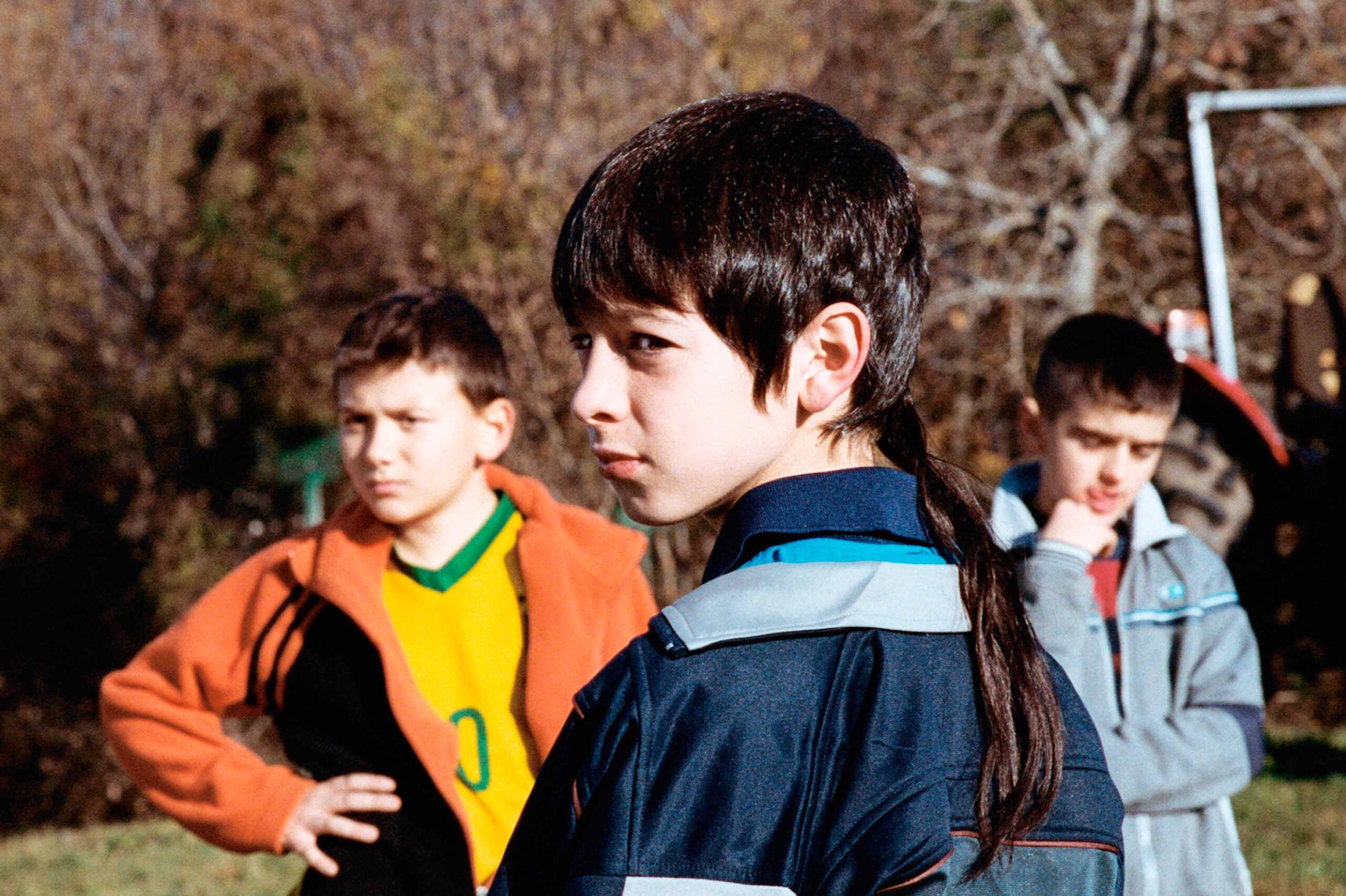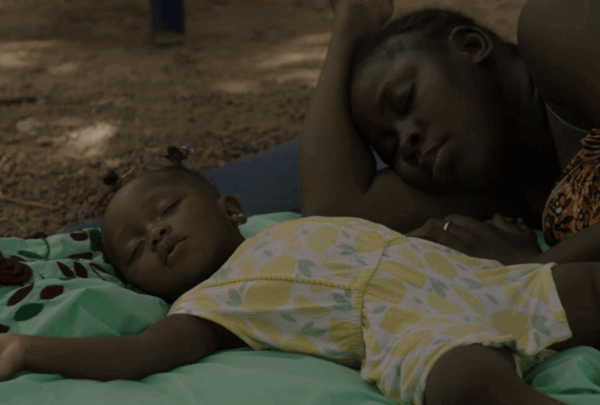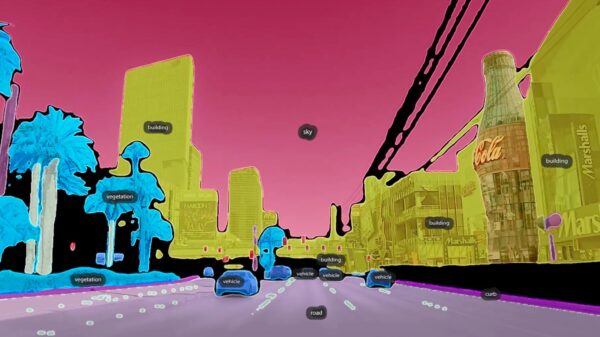I Hate and I Love
The Birthday Party
Francesco Sossai builds a queasy claustrophobia in the neo-giallo The Birthday Party.

On a crisp sunny morning in 1999, a young boy named Francesco arrives late to another boy’s birthday party. Everything opposes the two kids. Sensitive-eyed and freckled, Francesco is an elegantly dressed city boy anxious about Y2K and just about everything else besides. Birthday boy Enrico, on the other hand, lives surrounded by dogs and chickens in the Italian countryside, tells rude jokes, guzzles soda to force out loud belches and, despite his slight frame, is the swaggering leader of a pack of rowdy kids. Conflict is inevitable.
This is the set-up for Italian writer-director Francesco Sossai’s deliciously disquieting short, The Birthday Party. Shot like a giallo, it builds out from millennium bug malaise to construct a feverish and unsettling coming-of-age tale that revels in dark ambiguities about hatred and desire. Sossai says that his short is autobiographical and that he tried to represent some of the distortions of memory on film. Indeed, The Birthday Party judiciously incorporates telling historical details like bright tracksuits, bad mullets, and greasy rattails. This, combined with a grainy Super 16 texture, helps create a convincing period atmosphere.
But Sossai’s claim to autobiography might be just as playful as his film. Because alongside these period details, The Birthday Party gleefully deploys the highly-stylised vocabulary of giallo thrillers. Crash zooms, lush colours, and an insistent sound design recall the lurid pleasures of that fine Italian tradition practised by Dario Argento and co. There’s space for broader horror tropes, too, like the tinny-voiced radio that announces impending catastrophe at the outset—the millennium bug.
The Birthday Party happily inhabits two distinct eras. Its nervy 1999 feel marries effortlessly with its touches of loving pastiche and admiring homage. But the heart of the tale is timeless. Through Francesco and Enrico, Sossai skilfully toys with a series of potent divisions: childhood and maturity, present and past, town and country, masculinity and femininity. Or, rather, different kinds of masculinity, represented in part by the boys’ respective fathers.
The fathers, like their sons, couldn’t be more different. Francesco’s dad is a cautious, cultivated professional who calls his son mi amore and whose work involves computers. Enrico’s father, on the other hand, is cold, distant, and drunk, avoiding his own son’s birthday to tinker in the garage with his tipsy, loutish friends.

The Birthday Party (Francesco Sossai, 2023)
Will Francesco and Enrico, divided by class and much else besides, grow up to be like their dads? Sossai poses this kind of question with insinuating craft and impressive thematic focus. After all, Y2K hysteria was always simultaneously a fear for the future and of the past. But the writer-director also pays close attention to Enrico’s mother, who, cowed by her boorish husband, is left to cook and care for the kids. This a satisfying neo-giallo touch, given the genre’s notorious trouble with violence towards women. And one that’s in keeping with The Birthday Party’s broader renovation of the form, clearing a larger space for explorations of gay desire while still maintaining that special sinister atmosphere.
All of which builds a mounting horror and a queasy claustrophobia. It comes to a head as night falls when Francesco finds himself trapped at the foot of the Dolomites while a dark domestic drama erupts. (As though a kid’s birthday party wasn’t frightening enough…) But despite these fever-dream pyrotechnics, the film’s beating centre remains the battle of repulsion and desire between the callow, withdrawn Francesco and the macho kid Enrico.
In fact, Sossai handles these smart contrasts and puzzled yearnings with such assurance that it makes some of his more playful pastiches look almost like distractions. Enrico’s grandmother, for instance, sits immobile in her wheelchair, humming softly to herself while staring blankly into the camera, an elderly figure made grotesque and enigmatic all the better to unsettle us. Is grandma a creepy giallo crone? Another aspect of the film’s ache and confusion at growing up? Or are we being guided towards broader Italian anxieties about an ageing population and the death of rural life? Italy, of course, has a catastrophically low birth rate and a comparatively high life expectancy, making it one of the fastest-aging populations in the world. So where does that leave Grandma’s mysterious disappearance towards the end of the short?
Part of the cunning of this film is its clear joy at provoking such questions, thereby goading us into the sickly-sweet pleasures of over-interpretation. The distortions of memory can lead us there, too. And yet, by the time Francesco finds himself alone with grandma and starts toying at her cheeks, producing exaggerated squelches that sound like roughly handled raw meat, it ends up feeling almost like a contrived digression. It may well be a touch of postmodern terror or a manifestation of Francesco’s boyish cruelty. But there’s more than enough irony and horror in the ambiguous relation between Francesco and Enrico. It’s made all the more haunting by the confident performances of Sossai’s gifted young actors.
Does Francesco want to be like Enrico—he covertly attempts to style his hair in the same way and borrows Enrico’s clothes after dirtying his own—or is it a desire for something else? Is Francesco horrified by or attracted to the brute callousness of mature men like Enrico’s father, so different from his own dad? And what does Francesco really mean when, after a climactic stare down, he says to Enrico: “ti odio”? Translated literally: I hate you, though with Francesco’s Italian hewing close to the Roman poet Catullus’s famous odi et amo, I hate and I love. For this reviewer, at least, such agonised ambiguities are much meatier than grandma’s cheeks.
In a crowning irony, Enrico receives a birthday present from his drunk, slurring father. For his own birthday, Francesco had asked for a remote-controlled car—a gift his dad dismissed as childish. Enrico’s father gets him that very same remote-controlled car. How will Francesco react? His features harden. He looks on in silence. And his eyes seem to say ti odio. I hate and I love.






There are no comments yet, be the first!